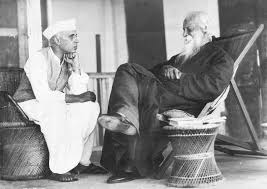Dr. Satish C Aikant explores the complex relationship between nationalism and colonialism in India, emphasizing that British colonialism not only propelled anti-imperial sentiments but also shaped nationalist movements across Asia and Africa. He cites Rabindranath Tagore, who criticized nationalism as a damaging export of Europe, arguing that it contradicts ideals of freedom and humanity.
Tagore believed that true nationalism could harm India’s diverse culture and identity. He advocated for a universal humanism over a fragmented nationalist ideology, promoting social harmony and addressing internal divisions like caste and gender discrimination. Despite his criticisms, he engaged in anti-imperialist politics, such as his initial support for the Swadeshi movement, though he later withdrew due to its violent turn.
Tagore warned against using national symbols for political ends, noting that such iconography could foster division and hierarchy rather than unity. As India celebrates its independence, the author reflects on the current climate, contrasting it with Tagore’s vision of inclusivity and cooperation. He expresses concern over rising jingoism and nationalism that undermine cultural pluralism, suggesting that Tagore’s ideals of peace and human unity are more relevant now than ever.



